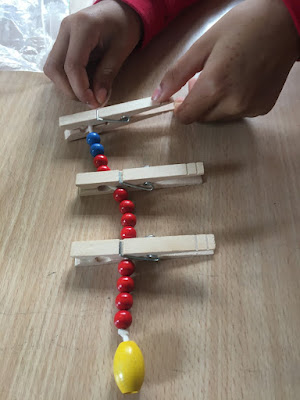Maths for All - Rastaala School, Espoo, Finland and Dunkirk Primary and Nursery School, Nottingham, UK 2020-2022
Background of the project
Recent
work in both schools has enabled the majority of learners to make greater
progress and to have a deeper understanding of the maths that they have been
taught. Both schools are identifying however, that a small minority of learners
either do not make the progress expected or have gaps in their knowledge due to
missed education or changes in education and not due to ability. Additionally,
many of these pupils are migrants or refugees and may not speak the language of
the country they have settled in. Maths is a universal language that does not
depend on culture or spoken language, which enables these learners to have some
success, however there are application aspects of maths which are dependent on
language and this can prevent a barrier to learning.
Therefore,
our objectives are:
- All pupils acquire maths knowledge
and skills appropriate for their age or, in the case of pupils with specific
needs, stage of development. We believe that all pupils can acquire maths
skills and knowledge and learn to apply this in a range of contexts. Currently
classes contain children with a wide range of abilities in maths.
- To find methodologies, based on the
theory of Bruner, which work across borders, cultures and languages to support
pupils to acquire mathematical skills which will impact on the pupils' rates of
progress.
- Teachers to improve skills in
teaching maths to benefit all pupils. This will involve teachers understanding
which concrete resources to use, when and how. It will also involve teachers
being able to assess the mathematical development of their pupils accurately so
that pupils are not moved on too soon before they have fully acquired the
current learning.
- Teachers to understand how to help
pupils who have gaps in their learning so that this group can start to fill
those gaps and in learning and make faster progress so as to close the gaps
with their peers -teachers to have greater confidence with how to support these
pupils.
- Helping children to keep pace with other learners in their class so as to impact positively on their self-esteem
- Improve pupils enjoyment of and attitude towards maths.
- Parents will know how
to support their children at home.
- changes to the teaching policy for maths based on the sharing of good practices and the trial of those methods.
- a range of printed, digital and video materials to support parents.
Videos in Finnish
Comment from one of the Finnish teachers
“The Erasmus exchange in Nottingham in the spring of 2022 was definitely
the highlight of the “Maths for All” project. As a young teacher, it was great
to get to know another country's mathematics teaching and the school's
operating methods and practices. Meeting foreign teachers and exchanging ideas
with them was interesting and thought-provoking.
Following the lessons was something new that you don't often get to
experience in your everyday work. It was interesting to look at different ways
the teachers' taught and how the students absorbed the things they were taught.
The project gave me self-confidence and new ideas for my own mathematics
teaching. The use of different tools in teaching mathematics is important.
Clarity and consistency are emphasized in understanding mathematics. The
students were enthusiastic about the functional teaching of mathematics.
Bringing different motivating teaching models to mathematics teaching is
important in order to increase students' motivation to study mathematics.
Different mathematical games made the students love learning mathematics.
I believe that the project has had a positive impact on my students' learning.
The more abundant use of different tools and games in teaching has increased my
students' motivation to study mathematics and thereby also improved learning.
We have shared all the material produced during the project with colleagues.
Through this, the entire school community has benefited from the project and
received ideas for their own mathematics teaching. We have also discussed a lot
about different teaching methods related to teaching mathematics and had a
professional discussion about what should be the most important focus in
teaching mathematics and how it should appear to the students (fun and
motivating).
I believe that this project has changed my own mathematics teaching permanently. During the project, I understood how important it is to remember the use of different concrete tools in teaching mathematics. How enthusiastic the students were about studying mathematics with the help of various tools and games was very memorable.”













Kommentit
Lähetä kommentti